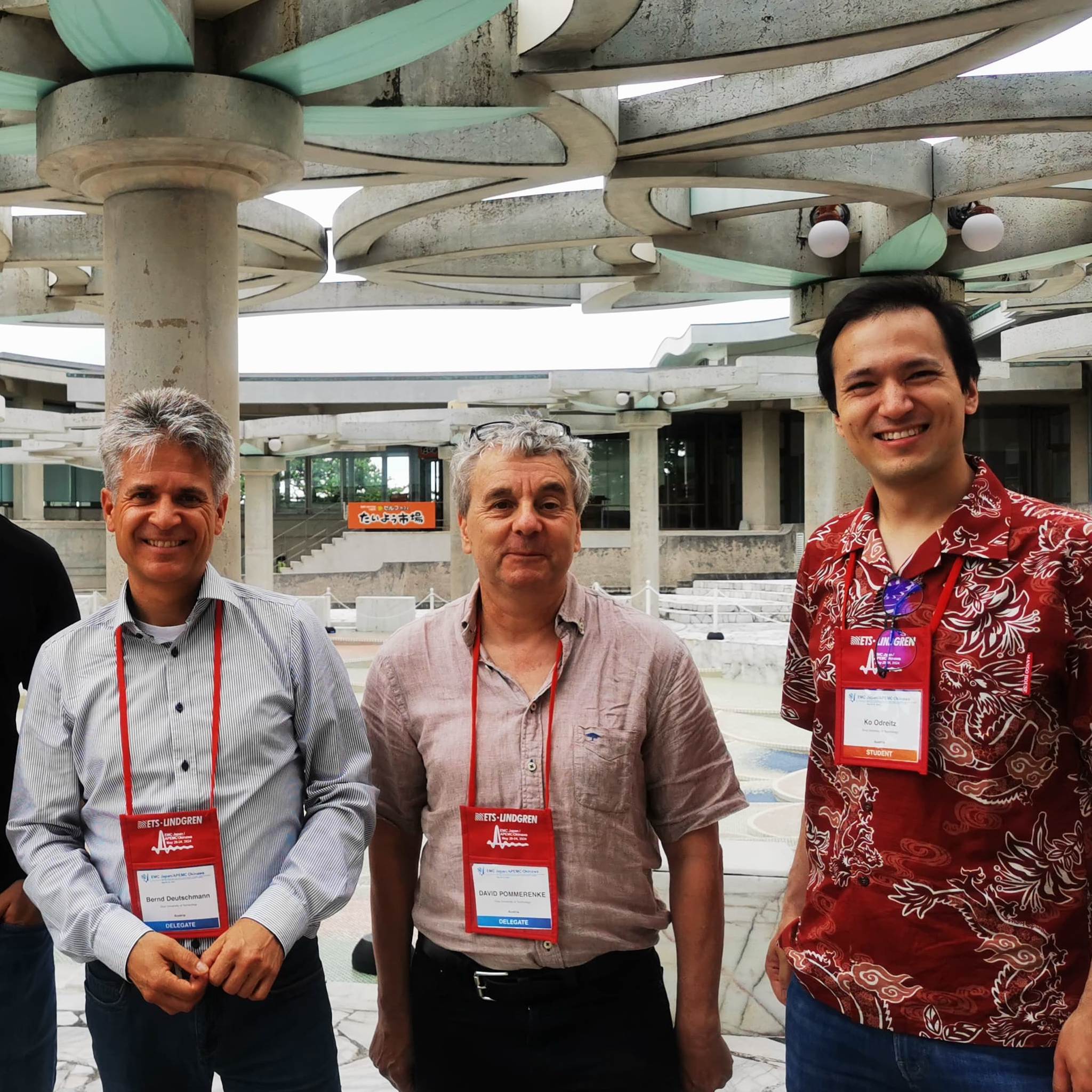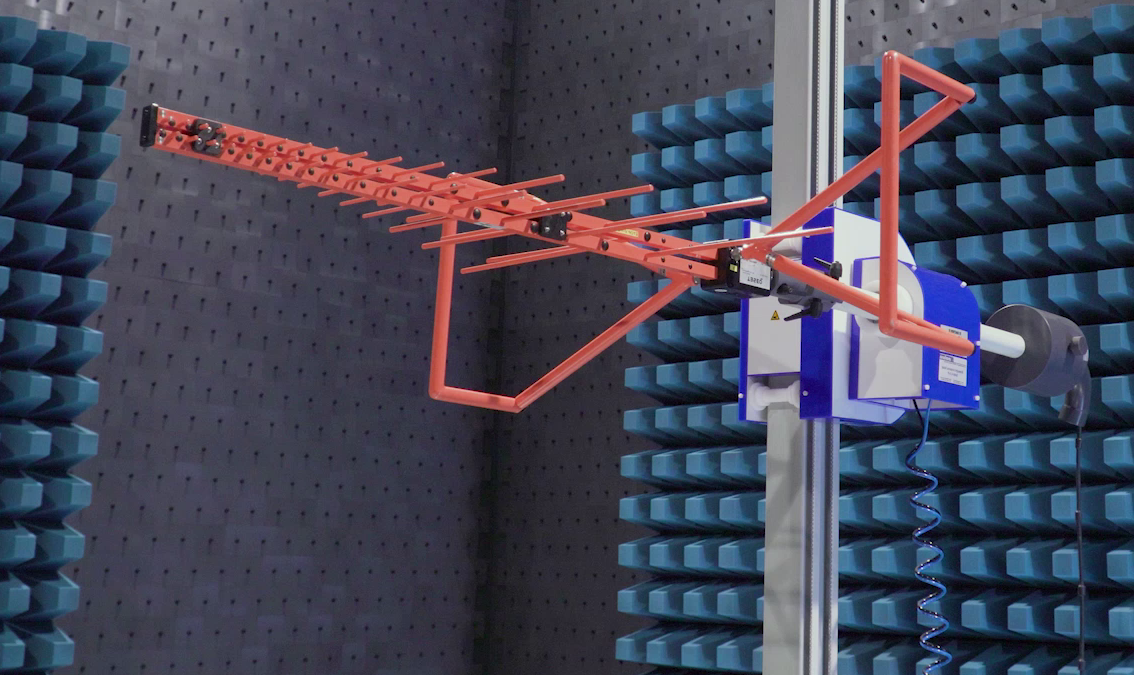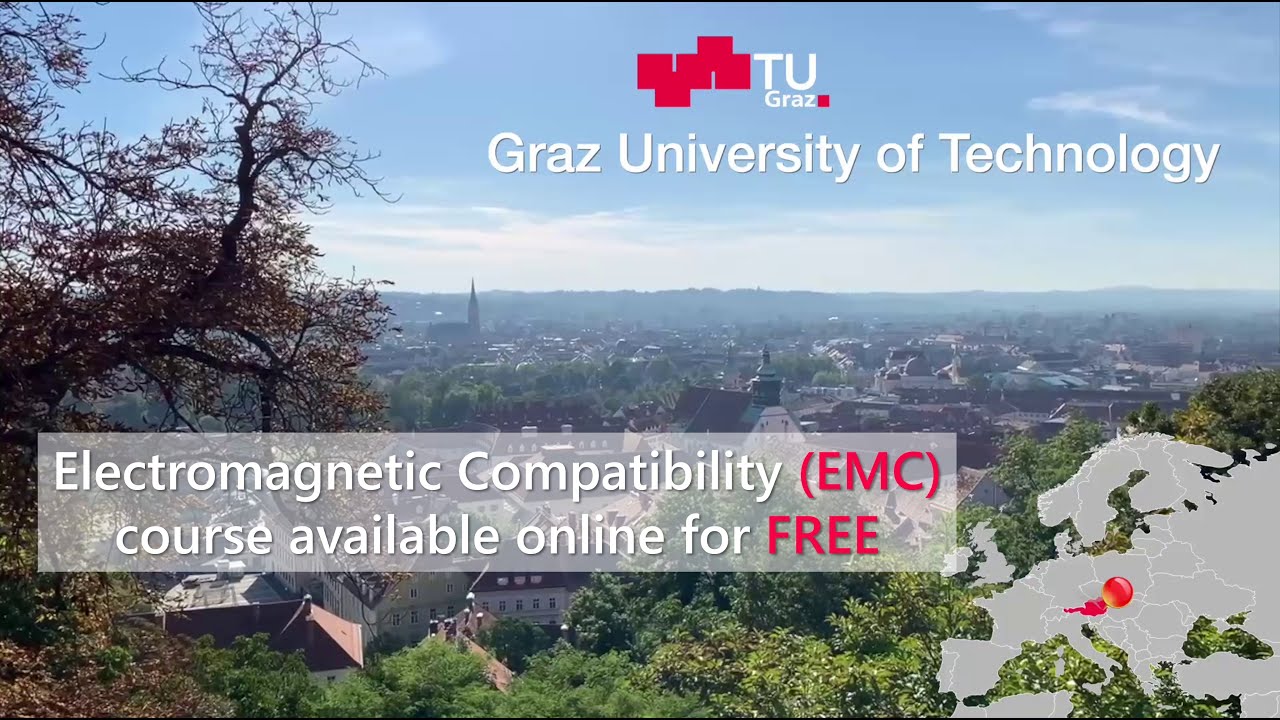Electromagnetic Compatibility Essentials
Course start: 31. октомври 2025
Electromagnetic Compatibility Essentials
Bernd Deutschmann, David Pommerenke, Ko Odreitz
Scientific classification:
Course start: 31. октомври 2025
Electromagnetic Compatibility Essentials
Bernd Deutschmann, David Pommerenke, Ko Odreitz
-
Scope: 15 units
-
Effort: 3 hours/week
-
Current participants: 130
-
Licence: CC BY 4.0
-
Course start: 31. октомври 2025
-
Course end: -
-
Current status: Ongoing course
-
Available languages:
Trailer
Course details
Course content
Why can’t I connect to WiFi? Why does my Bluetooth stop working when I use USB4? Oh! I just sparked into my computer after sitting down; is it damaged now? All of these issues have to do with electromagnetic compatibility (EMC). International EMC experts David Pommerenke and Bernd Deutschmann break down situations that seem highly complex in order to highlight the causes of interference.
This course is designed to gain essential know-how in today’s world of very high frequencies. For instance, smartphone CPUs already work with clock frequencies above 3 GHz. But did you know that such fast switching disturbs other devices nearby? Such disturbances are either simply annoying or can become a real problem. As a consequence, international regulations exist which demand for emission and immunity tests before selling an electronic device.
The topic of EMC must be considered in all aspects of circuit design in order to reduce the number of prototypes. We would like you to gain an intuition for EMC with the help of lab examples. We emphasize basic physical principles and avoid highly complex mathematical derivations instead.
Did you know that TU Graz is one of the best universities for research and teaching in the field of EMC? We regularly publish in scientific journals and are represented at the most important conferences. Around a dozen full-time researchers work at our institute in the field of EMC, either experimentally in the lab, or through simulations on the PC, which also involve machine learning. We would like to share this expertise with the community, since EMC must be considered by all electronics engineers and project managers.
This is a self-paced course, so there are no weekly deadlines. This class is completely free of charge. Give it a try and dive into the fascinating world of EMC.
Learning goals
This course is designed for EMC newcomers:
- Learn where these electromagnetic interferences (EMI) come from.
- Fundamental knowledge on how to keep them under control.
- Techniques such as the analysis in time and frequency domain.
- Noise travels in two modes: differential and common. Knowing in which mode the noise occurs opens doors to suppression (EMI filtering).
- Not only radiating fields matter, but electrostatic discharge (ESD) as well. How large are the voltages after walking on a carpet? How stressful are the discharges to my computer?
- And much more! (e.g., EMI receiver, lumped-element models, most important EMC standards)
Prerequisites
Fundamental knowledge of electrical engineering including circuit analysis and electromagnetics.
Course schedule
You can learn the topics relevant to you or get the full experience at your own pace:
Introduction: Learn what EMC is and why we should bother with it. Understand the theory of galvanic, capacitive, inductive, and radiated coupling. Time and frequency domain awareness. Spectrum analysis.
EMC Design: Learn the most common EMI countermeasures: filtering and shielding. Understand that an EMC-aware PCB design makes a tremendous difference. Consider parasitic elements of components and create simple lumped element models.
EMC Testing: Learn the purpose of international regulations. Understand basic laboratory equipment. ESD testing. Conducted and radiated emission measurements. Procedure with an accredited test house.
Certificate
For actively participating in the course you will receive an automatic certificate which includes your name, the course name as well as the completed lessons. We want to point out that this certificate merely confirms that you answered at least 75% of the self-assessment questions correctly.
Licence
This work is licensed under Creative Commons - 4.0 International (CC BY 4.0)
Additional content
Made with ❤️ by the IFE team.
Thanks to Jan Eberl, Stefanie Frossard, Michael Fuchs, Maria Haas, Sabrina Koffler, Christoph Maier, Marco Pfeifer.
Course instructor

Bernd Deutschmann, David Pommerenke, Ko Odreitz
Bernd Deutschmann
BERND DEUTSCHMANN has received the M.Sc. degree and the Ph.D. degree in telecommunication engineering from the Graz University of Technology, Graz, Austria, in 1999 and 2002, respectively. In 2006, he joined the Automotive Power EMC Center, Infineon Technologies AG, where he worked on the improvement of the EMC of ICs for automotive power applications. Since 2014, he is with the Institute of Electronic, Graz University of Technology as a Full Professor. During his research activities, he has applied for several patents and has authored and coauthored numerous papers and technical articles in the field of electromagnetic compatibility of integrated circuits.
David Pommerenke
DAVID POMMERENKE (Fellow, IEEE) received the Diploma and the Ph.D. degree in electrical engineering from Technical University Berlin, Berlin, Germany, in 1990 and 1996, respectively. He was with Hewlett Packard, Houston, TX, USA, for five years. He became a Faculty with the Electromagnetic Compatibility Laboratory, Missouri University of Science and Technology, Rolla, MO, USA. In 2020, he joined the Faculty of the EMC Laboratory, Graz University of Technology, Graz, Austria. His current research interests include system-level ESD, electronics, numerical simulations, EMC, measurement methods, and instrumentation. Dr. Pommerenke is an Associated Editor for the IEEE Transactions on Electromagnetic Compatibility.
Ko Odreitz
KO ODREITZ received his BSc and MSc degrees in Electrical Engineering from Graz University of Technology, Austria, in 2019 and 2021, respectively, where he is currently pursuing his PhD in Electromagnetic Compatibility, focusing on predicting conducted emission in power electronics.
Partners
-

Graz University of Technology


